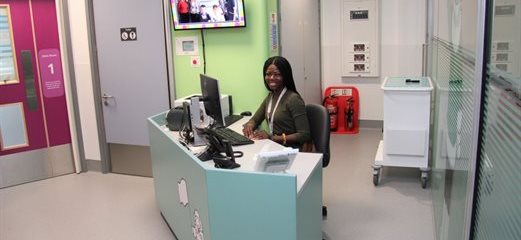
Our research team support over 70 studies within Evelina London.
Our research includes studies of new medicines and devices (known as clinical trials) as well of studies that watch how children grow and learn.
Interested in taking part in research at Evelina London?
If you're interested in taking part in a research study as a patient, please speak to your doctor who will refer you to the appropriate study team.
You can also email: gstt.evelinaresearch@nhs.net
What clinical trials are available at Evelina London?
To find out about clinical trials across the UK (not just ones at Evelina London or other parts of Guy’s and St Thomas’), visit the national Be Part of Research website.
Learn more about taking part in research
Visit the Guy's and St Thomas' website to learn more about the benefits of taking part in research and what to consider before signing up to studies and trials.
Research success stories
Read Evelina London's latest research news.
Find out about research achievements from across Guy's and St Thomas' NHS Foundation Trust.
What are Seal and Wolf?
If you take part in a clinical trial, this might take place in Wolf or Seal. These are our clinical research facilities at Evelina London Children's Hospital.
Seal provides a specialist environment for children, young people and their families to participate in a broad range of paediatric allergy and dermatology related clinical research studies.
Wolf is a safe, warm and welcoming environment that allows children and young people to take part in our studies alongside their ongoing care. It is for children and young people participating in early phase clinical trials and research studies.